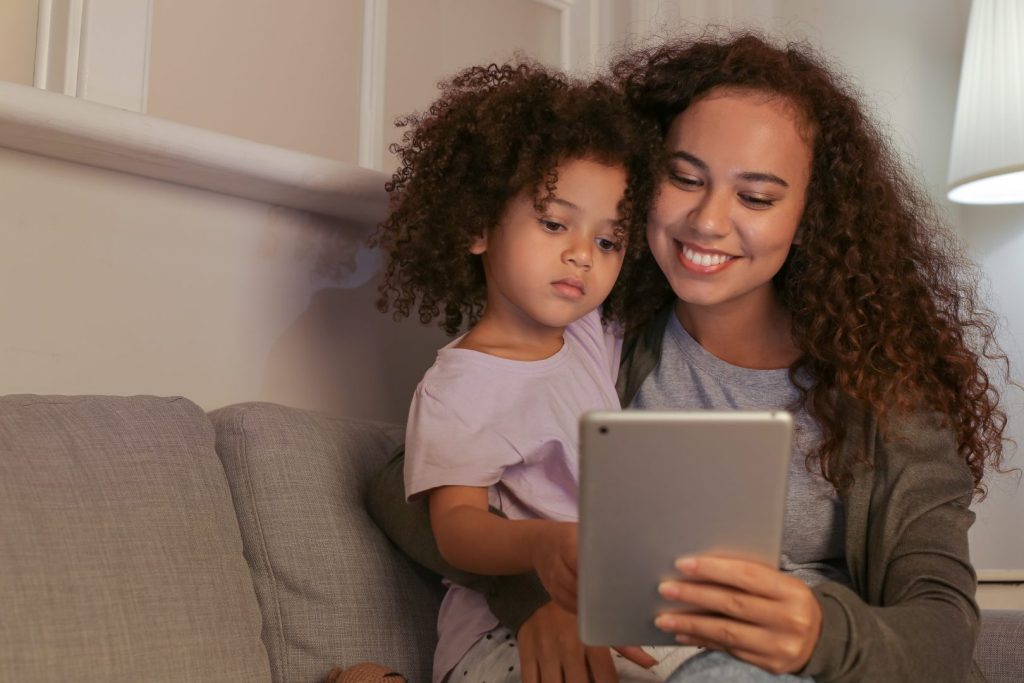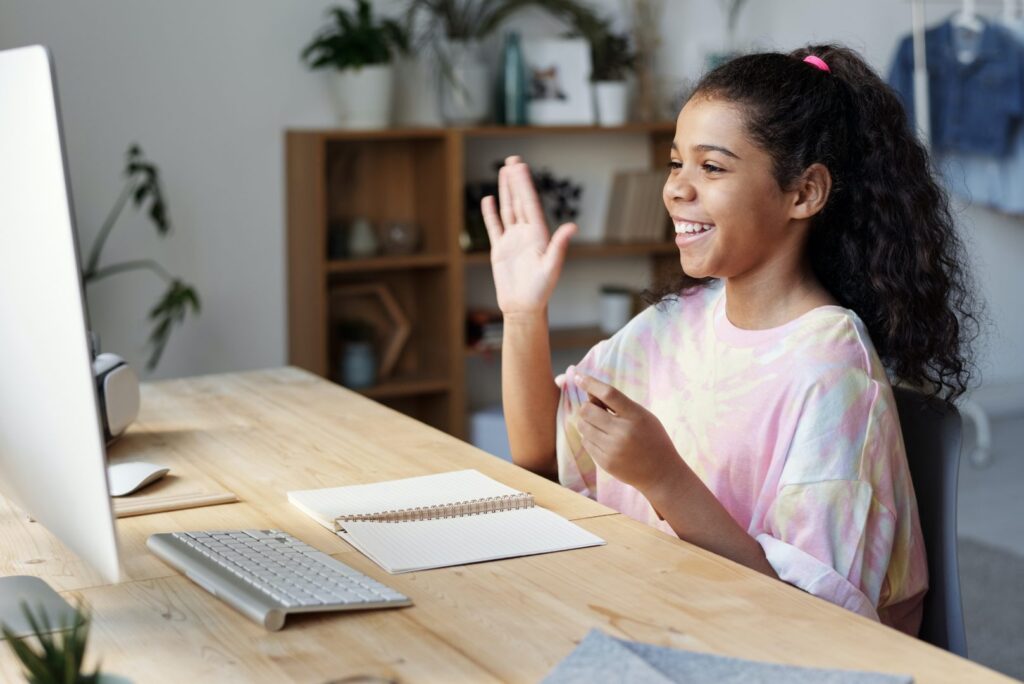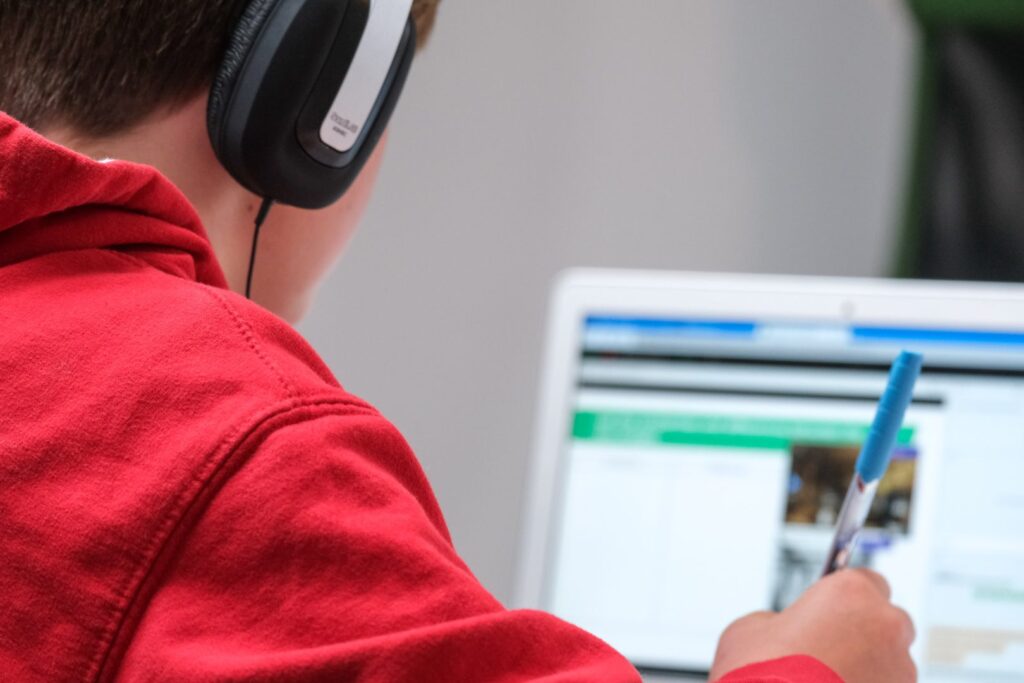A dilemma has sparked about whether screens cause poor academic performance. We can’t ignore that screens affect children’s academic performance and lower their learning abilities and academic performance, but it is not the fundamental factor that influences that condition.
That’s because we also must admit technology is a tool that can improve children’s learning process. So, in this article, we’ll go over the link between screens and academic performance.
Screens in Education: How are They Influencing Students?
Children’s learning process nowadays is fast, and they have easy access to reputable resources.

Screens in the classroom allow teachers to have interactive classes, which are more interesting for children. There are many more advantages to using screens in the classroom, such as:
- Teamwork and interaction;
- The increased connection between children and teachers;
- Easier access to needed skills;
- Increased children’s interest in school;
- Lessons are easier to understand;
But there are also some challenges that teachers and schools face when implementing screens in the classroom:
- The cost of technology;
- WiFi connection;
- Teachers’ tech skills and methods of teaching;
- Children’s distraction, caused by their intention to use screens in the classroom for fun instead of learning;
All things considered, screens in the classroom increase children’s engagement through interaction and communication with teachers.
How Does Screen Time Impact Attention Span and Academic Performance?
If children learn with the help of screens in the classroom, they can be disturbed by social media or video games, which affects their attention span.
It is hard for children to remain focused and concentrated when they’re playing a video game instead of listening to the teacher.

Also, children’s will to multitask can take a toll on their academic performance. Children can’t remain focused when many pieces of information flow through their heads.
And I’m not talking only based on my experience. Reputable organizations like UNICEF also support the claim that screens have an impact on children’s attention span and academic performance.
Screens and Sleep: What are the Implications for Academic Success?
Sleep is an essential process for our children’s bodies and minds. They need quality sleep and regular sleeping hours.
Before bedtime, children usually scroll on their smartphones, which reduces sleeping hours. And even if we constantly tell them to leave the phone before bed, they won’t listen and waste their precious sleep time on screens.
Studies show that using screens before bed does indeed lowers children’s sleeping quality. So, children find themselves unrefreshed, defocused and lose interest in school. Some even try to skip school so they can rest a bit.
Because children’s mental presence and focus in class are crucial, avoiding sleep causes low academic performance.

How Does Social Media Cause Poor Academic Performance?
Social media is very popular among students. Studies show that 90% of all teenagers are active on social media.
They spend many hours posting, viewing, liking, commenting, watching videos, or stalking their favorite influencers.
But social media can take away children’s focus. Besides the focus problems, social media causes behavioral and phycological changes in students.
Some students admire and want to copy the bodies, social status, and lifestyles influencers promote on social media platforms.
That can cause students to develop low self-esteem, withdraw from others and isolate themselves. They feel inferior, become frustrated, and don’t even have time to think about their academic performance.
How can Parents Support Academic Success?
Parents know the value of academic success. They have been through that educational process and can guide children to the right path.
Dealing with excessive screen time and raising a future academic figure at the same time is not an easy parental task. But that’s why parents are superheroes, right? Jokes aside, here are some strategies to support children’s academic success.

Start with an open conversation and discuss children’s priorities. Set screen time boundaries, especially before bed. Tell your children they must respect those rules, no matter their age.
Moreover, teach your children the value of education and that their future depends on it (filters are now but knowledge is forever).
And never forget to tell your children that they shouldn’t forget the great outdoors and the beauty of nature.
Engage them in outdoor activities such as sports, walks, or grab your favorite book and read together in the park.
Mitigating the Negative Effects of Screens: What Strategies Can Help?
We’ve already concluded that screens harm children’s academic performance. That’s why I present to you some strategies that can help lower the negative effects of screens.
Firstly, try implementing a digital detox routine in your family. But what’s a digital detox? Well, it’s like a digital diet, where you cut off the time spent on screens.
Digital detoxing is a tough process, so your children can start with regular screen breaks. For example, if your children use tech for 30 minutes straight, they should take a break.
Moreover, you can teach your children some studying strategies. I always liked to write down the key points of every lesson, and it turned out pretty well for me.
So, I advise you to help your children find the perfect learning method which can help them better their academic performance.
Digital Literacy and Self-Regulation: How Can Students Achieve Academic Success?
The two main things in today’s life are digital literacy and self-regulation from excessive tech usage. Digital literacy includes all the skills your children need to acquire to navigate today’s digital world.
These abilities include logical thinking, quick problem-solving, creativity, and, of course, tech skills.

But the bigger question here is how children can self-regulate. When they’re addicted to tech, children can’t think about other things.
Well, the best way to self-regulate is by engaging in other activities, such as sports, crafts, music, literature, etc.
Balancing Screen Use and Academic Success: Tips for Students
Students can manage their time by setting priorities. It’s not hard, especially when you have a tower of lessons to learn.
Remember the golden parenting role- first study, then play. But, to reach academic excellence and do assignments quicker, children can use online productivity tools.
Online calendars, project management apps, and such help students manage their time more easily and improve their academic performance.
FAQs:
How much screen time is recommended for students?
Students shouldn’t use tech for entertainment purposes for more than two hours daily.
Can screen-based learning benefit students?
Yes, it can. Screens offer many educational benefits for children.
What factors affect poor academic performance?
Loss of focus, deconcentration, and constant pressure might affect poor academic performance.
What are the effects of too much screen time for high school students?
High school students will be more distracted, ultimately lowering their academic performance.
How does social media affect students’ learning?
Social media can distract students for hours and hours until they remember they have assignments to do. But then it’s too late, and students have to pull all-nighters to finish.
ALSO READ: Does Screen Time Affect Language Development







